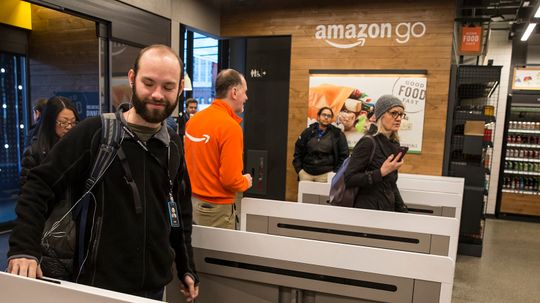In today’s digital age, where convenience often trumps privacy concerns, it is crucial to be aware of the potential risks associated with emerging technologies. One such technology that has gained significant popularity is Amazon Go, a cashier-less shopping experience that promises seamless transactions and minimal wait times. However, before you dive headfirst into this futuristic retail concept, it is essential to understand the implications it may have on your personal privacy.
The Intricacies of Amazon Go’s Surveillance System
At the heart of Amazon Go lies an intricate surveillance system powered by advanced computer vision and machine learning algorithms. This system continuously monitors shoppers’ movements within the store using an array of cameras and sensors strategically placed throughout the premises. While this enables a frictionless shopping experience without traditional checkout lines or cashiers, it also means that every step you take inside the store is being meticulously tracked and recorded.
Data Collection: The Price You Pay for Convenience
When you enter an Amazon Go store, you are essentially surrendering a considerable amount of personal data in exchange for convenience. Every item you pick up or put back on shelves is logged in real-time through sophisticated image recognition software. Additionally, facial recognition technology employed by these stores further adds to the extensive data collection process as your face becomes another piece of information stored within their systems.
Potential Privacy Concerns and Implications
While Amazon assures customers that their data will be handled securely and used solely for improving their shopping experience, there are valid concerns regarding potential misuse or unauthorized access to this vast pool of sensitive information. As we have witnessed numerous instances where even tech giants have fallen victim to security breaches or faced allegations related to mishandling user data, it becomes imperative to approach Amazon Go with caution.
Moreover, the integration of facial recognition technology raises additional ethical questions. The potential for misuse or abuse of this technology by third parties cannot be ignored, especially considering the lack of comprehensive regulations surrounding its implementation and usage.
Conclusion: Balancing Convenience and Privacy
As consumers, it is essential to strike a balance between embracing technological advancements and safeguarding our privacy. While Amazon Go offers unparalleled convenience in the realm of retail shopping, we must remain vigilant about the potential risks associated with such innovations. It is crucial to stay informed about how our personal data is being collected, stored, and utilized by companies like Amazon. By doing so, we can make more conscious decisions regarding which aspects of our privacy we are willing to compromise in exchange for convenience.

